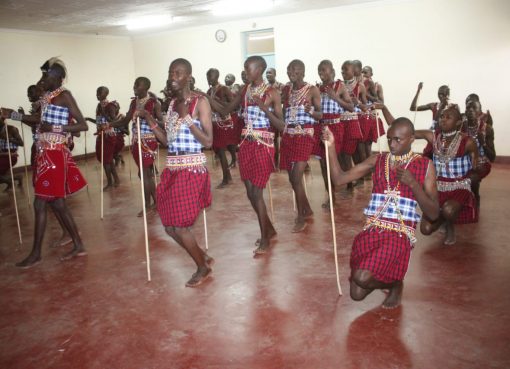
The hazardous Ipomoea weed has invaded over 30 per cent of grazing land in Kajiando County quickly threatening local livelihoods by choking pasture.
The Kajiado Governor, Joseph Ole Lenku has therefore challenged education elites and universities within the County to focus on research that would help in providing a lasting solution to the menace.
Lenku was addressing an International Conference on Science, Technology and Innovation for Sustainable Development in Dry Land Environments at UMMA University on Friday.
“Kajiado County is under attack by Ipomoea weed and I would like to challenge our scientists, especially those who are here, to help us find a permanent solution to this menace. We shall be glad to enter into a partnership towards this end,” said Lenku.
According to Kajiado County Coordinator of Agricultural Sector Development Support Program (ASDSP), Halima Nenkari, the County is among the worst affected by Ipomoea weed in Kenya.
“In a survey that we did in 2016, at least 1 million acres in the County had been affected and now we presume it to be more because of the rains as the weed spreads very fast,” she said
Nenkari said ‘Ipomoea’ which is also known as Olbeneyio, Oltiameleteti or Oltiameleshi in the local Maasai language, was first cited in Kajiado in 1995.
She noted that the best methods of wiping out the hazardous weed is uprooting it continuously for a period of 3 years to stop it from spreading and cutting its flower which carries the seeds.
“We have held several capacity building meetings with locals and trained at least 1, 000 people from the five pastoral fields on how best to control the menace which is only through uprooting since spraying will cause death of livestock due to chemicals effects,” Nenkari said.
Meanwhile, the Governor pledged to work with researchers on the upcoming study on faster, easier and cheaper hay production and conservation terming it the next big thing in the County.
He said his government was also working out how the County could harvest rain water that normally drains into the ground yet if well harnessed could enable residents live comfortably during dry spells.
Lenku lauded UMMA and South Eastern Kenya universities for showing interests in enhancing community well being.
“The two universities operate in one of Kenya’s most resourceful drylands where there is vicious competition for the available resources and environmental degradation and exploitation through human activities,” he noted.
By Rop Janet/Albert Lemomo



